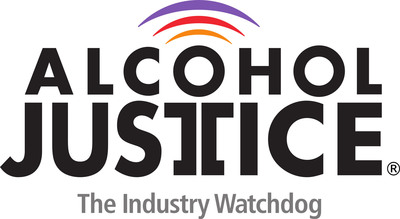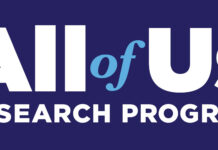LOS ANGELES, Aug. 6, 2020 /PRNewswire-HISPANIC PR WIRE/ — Results of a new survey on alcohol drinking habits during California’s Covid-19 shelter-in-place order reveals a disturbing rise in binge drinking and easier access to alcohol due to lifting of some alcohol restrictions when the pandemic began.

In an effort to prevent large group gatherings, Governor Newsom ordered closure of indoor dining, bars and nightclubs. To offset the ensuing revenue loss to the alcohol industry, Newsom declared alcohol “essential” and the California Department of Alcoholic Beverage Control (ABC) lifted regulations on take out and home delivery of alcoholic beverages.
To determine how easier access to alcohol impacts alcohol behaviors, Alcohol Justice, an alcohol industry watchdog organization and the Institute for Public Strategies (IPS), a public health agency, conducted the Los Angeles County Alcohol Shelter-In-Place (SIP) Survey, an online pilot survey of 218 alcohol-using residents of Los Angeles County. The results show an increase in binge drinking and that people who ordered alcohol for delivery or to-go, were more likely to binge drink
“This report confirms that high-risk drinking has increased during quarantine,” said Sarah Blanch, Vice President of Organizational Development at IPS. “It also shows that people making use of the new alcohol delivery services and other relief measures are significantly more likely to engage in risky drinking.”
The survey respondents were greater than age 21, with a primary residence in Los Angeles County (including the City of Los Angeles), and confirmed that they had at least one drink of alcohol in the past 12 months. Respondents were asked to compare their alcohol use before March 2020, to their drinking habits in May or June of this year, during the SIP order. The survey shows:
- Compared to pre-SIP, 28% of respondents (n=60) reported more frequent binge drinking, (defined as a session of 5+ drinks for males, 4+ for females).
- 42% of respondents purchased alcohol through delivery or to-go and also increased binge drinking.
- During SIP, 28% of Caucasian respondents engaged in binge drinking weekly or more, compared to 23.6% of Hispanic respondents and 20% of African-American respondents.
- After SIP, 37% of African-American and 38% of Hispanic respondents were more likely to have increased binge drinking.
- Compared to pre-SIP, drinking while socializing via an internet-connected device increased 52%.
Health and safety advocates say there is an urgent need to discontinue delivery and to-go services for alcohol.
“The state seems to have really doubled down on alcohol sales as a way to save the economy during the pandemic, and these data shows extra sales means more binge drinking,” said Carson Benowitz-Fredericks, Research Manager for Alcohol Justice. “When we see policies that encourage reckless drinking at a time when it’s even harder than usual to get medical, mental health, or even basic financial assistance, we need to stop thinking of it as “saving” anything.”
Overconsumption of alcohol is implicated in several hazardous outcomes, including accidental injury, violent crime, suicide attempts, and intimate partner violence. Moreover, research suggests that alcohol’s effects on the immune system may predispose individuals to contracting the coronavirus and worsen the outcomes once exposed. According to a leading scientific journal, consuming alcohol seems to be a risk factor for contracting Covid-19 and the severity of the disease.
“Why should we continue to help the alcohol industry increase their already massive profits and lift policies that make it easier for binge drinking, which leads to increased community harms?” said Maurina Cintron, Co-Chair, LA DAPA (Los Angeles Drug and Alcohol Policy Alliance). “This is another prime example of big industry profits taking priority over youth and young adults.”
The release of the SIP survey results follows a news conference in late July by the California Alcohol Policy Alliance (CAPA), calling on Governor Newsom to remove alcohol from the Essential Services list during the pandemic. A major concern is too much access to alcohol in L.A. County where 80% of communities have more alcohol businesses than what ABC recommends.
“ABC rarely denies alcohol licenses and in fact has contributed to social, racial and health inequities by allowing alcohol overconcentration in historically disadvantaged communities throughout California,” said Gilbert Mora, Co-Chair, California Alcohol Policy Alliance (CAPA). “During this critical time, we are dealing with a health epidemic, ABC’s complicity with the alcohol industry is costing lives. Please text the word CAPA to 313131 to send a message to the Governor asking him to make public health essential, not alcohol.”
California currently suffers over 10,500 alcohol-related deaths, 165,000 alcohol-related hospitalizations and $35 billion in related economic harm. Download the full SIP Survey report and results here.
IPS and Alcohol Justice invite the public to discuss this issue during a Twitter chat August 12th at 10 am. Follow the discussion and give us your opinion, by using the hashtag #SIPAlcoholLA on Twitter.
Contacts: Cynthia Nickerson (IPS) 323-675-8785
cnickerson@publicstrategies.org
Michael Scippa (AJ) 415 548-0492
michaels@alcoholjustice.org
Logo – https://mma.prnewswire.com/media/147418/alcohol_justice_logo.jpg
SOURCE Alcohol Justice






